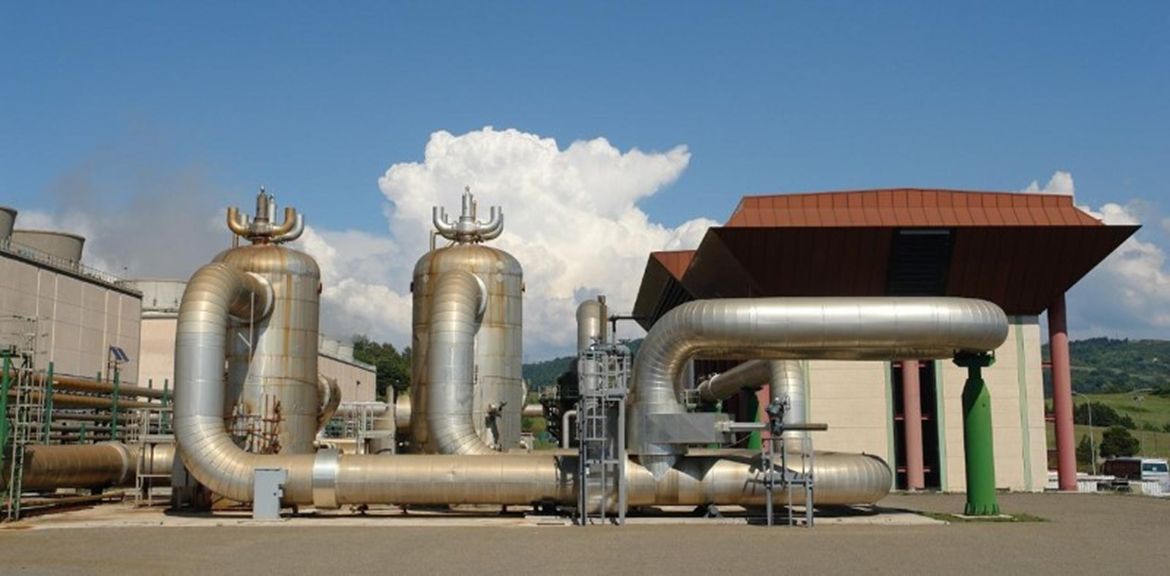ROME, Dec 10, 2024 - (ACN Newswire) - Recently, Friedman Institute has released its analysis report "Libyan Oil and Gas Supply - Italy's Strategic Role in Mediterranean Energy ". Italy is positioning itself as a central energy hub in the Mediterranean, a strategy underpinned by its continued reliance on Libyan oil and gas. According to a recent analytical note published by the Istituto Friedman, Italy stands to benefit from the vast untapped energy resources in Libya, despite the country's ongoing instability. The analysis, titled "La turbolenta Libia: Una grande opportunità per l'Italia", highlights the growing importance of Libyan energy supplies to Italy and the geopolitical challenges and opportunities these pose.

The National Oil Corporation (NOC) of Libya has made a significant announcement: approximately 70% of Libya's territory remains unexplored for oil and gas resources, suggesting significant growth potential for the sector. Libyan NOC Chairman Farhat Bengdara emphasized the corporation's commitment to developing these resources through international partnerships. Libya already holds the largest proven oil reserves in Africa, with over 48 billion barrels of oil and significant natural gas reserves. Despite these rich resources, Libya remains a high-risk investment destination due to its unstable political and security situation.
The country, which fell into chaos after the 2011 NATO-backed revolution that overthrew leader Muammar Gaddafi, has been divided between two rival governments: one in the east and one in Tripoli in the west. In this context, Italy remains one of the primary international stakeholders in Libyan energy, importing substantial quantities of oil and gas despite the volatility of production levels.
Italy's Energy Deal with Libya: A Double-Edged Sword
The 2023 energy deal between Italy and Libya, worth $8 billion, has stirred considerable debate. Critics, including Libyan political figures and international energy experts, have raised concerns about the agreement's legality and its long-term implications. Experts also pointed out that instability, rising domestic demand, and a lack of investment have seriously hampered Libya's ability to meet foreign gas export needs.
The risks associated with the Libyan energy market have been highlighted in the wake of a five-week-old block resulting from a dispute over control of the Central Bank of Libya. This disruption has had a far-reaching impact, particularly on European energy markets. A prolonged reduction in Libyan oil exports could force European stakeholders to reassess their strategic and contractual commitments.
Another recent development has been the mobilization of militias in response to one Italian energy company's exploration activities in the Hamada oil and gas field. This incident underlines the risks posed by the ongoing instability in Libya, particularly for foreign investors. A Middle East expert, commented that the incident "highlights the growing risks for their investments in Libya."
Despite these challenges, Italy is determined to maintain and expand its role as a key energy player in the Mediterranean region. The country already imports gas through three major pipelines from Azerbaijan, Libya, and Algeria, with additional plans for floating storage and regasification units to import more gas from Egypt and Israel.
As Europe seeks to diversify its energy sources, especially in the wake of the energy crisis exacerbated by the war in Ukraine, Italy's strategic location as a Mediterranean energy hub becomes more significant. If countries like Germany decide to increase their imports from Mediterranean producers, Italy could play a crucial role in facilitating these exports, leveraging its infrastructure for storing and transiting natural gas via depleted reservoirs in the Po Valley.
However, Italy's ambitions could face challenges from regional powers competing for influence in Libya's energy sector. Countries like Turkey, France, and the United Arab Emirates have already made significant investments in Libya's energy resources and could resist Italy's increasing dominance in the region.
As some European media outlets report , Italy is well aware of the potential risks, that's why it took action in securing its oil operations.
The Friedman Institute's analysis underscores the critical geopolitical role that Libya's energy resources play in Italy's energy future. Despite the instability and security risks that continue to plague Libya, the potential rewards for Italy are substantial. The country's efforts to secure a central position in the Mediterranean energy landscape, coupled with Libya's untapped resources, could help Italy diversify its energy supply and enhance its geopolitical influence.
For further details, please refer to the full analytical note from Istituto Friedman here.
Social Links
X: https://x.com/FriedmanInst
Facebook: https://www.facebook.com/istitutofriedman/?locale=it_IT
LinkedIn: https://www.linkedin.com/company/miltonfriedmaninstitute/
YouTube: https://www.youtube.com/@miltonfriedmaninstitute
Instagram: https://www.instagram.com/friedmaninstitute/?hl=it
Contact Information
Brand: Istituto Friedman
Contact: Media team
Address: Via degli uffici del Vicario 43, Roma, 00186
Website: https://www.friedmaninstitute.it/
トピック: Press release summary
Source: Istituto Friedman
https://www.acnnewswire.com
From the Asia Corporate News Network
Copyright © 2024 ACN Newswire. All rights reserved. A division of Asia Corporate News Network.
|